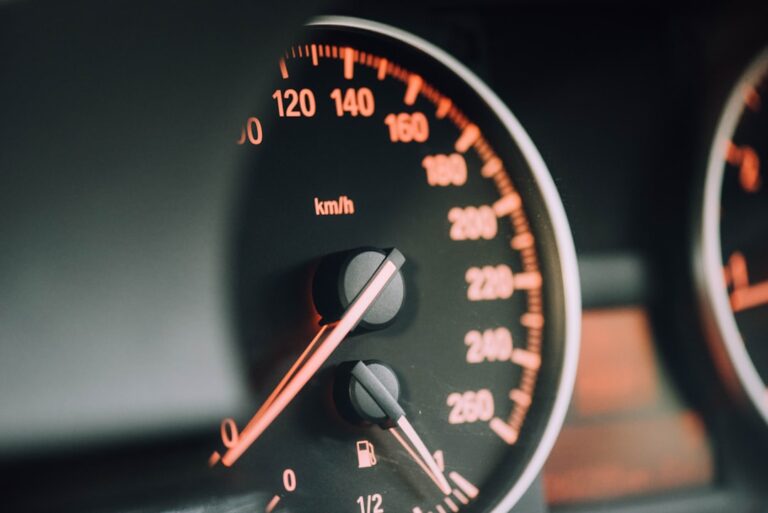Support our educational content for free when you purchase through links on our site. Learn more
What Credit Score is Needed to Lease a Car? 🚗 7 Key Insights for 2025

Leasing a car can be an exciting journey, but if you’re wondering, “What credit score is needed to lease a car?” you’re not alone! Many potential lessees find themselves puzzled by the intricacies of credit scores and how they affect leasing options. Did you know that a credit score of 700 or above can unlock the best deals and terms? In this article, we’ll break down everything you need to know about credit scores and car leasing, including what to do if your score isn’t quite where you want it to be. Whether you’re aiming for a sleek new sedan or a rugged SUV, understanding your credit score is the first step toward hitting the road in style.
As we dive deeper, we’ll explore the challenges of leasing with bad credit, actionable steps to improve your score, and insider tips on how to negotiate the best lease terms. Ready to rev up your leasing knowledge? Let’s get started!
Key Takeaways
- Credit Score Matters: A score of 700+ is ideal for the best lease deals.
- Leasing with Bad Credit: You can still lease a car, but expect higher rates and larger down payments.
- Improvement Strategies: Focus on timely payments and reducing debt to boost your score.
- 👉 Shop Around: Always compare offers from multiple dealerships to find the best terms.
- Negotiation is Key: Don’t hesitate to negotiate lease terms, including interest rates and payments.
For the latest car lease deals, check out our Latest Car Lease Deals and start your journey toward leasing your dream car today!
Table of Contents
Quick Tips and Facts
Understanding Credit Scores and Car Leasing
What Credit Score is Ideal for Leasing a Car?
Leasing a Car with Bad Credit: What You Need to Know
Steps to Successfully Lease a Car with Poor Credit
How to Boost Your Credit Score Before Leasing
The Impact of Credit Scores on Lease Terms and Rates
Common Misconceptions About Credit Scores and Leasing
Key Takeaways: Leasing a Car with Bad Credit
Conclusion
Recommended Links
FAQ
Reference Links
Quick Tips and Facts
- Credit scores matter: Your credit score is a key factor in determining your eligibility for a car lease and the terms you’ll receive.
- Higher is better: A higher credit score generally translates to lower interest rates, more favorable lease terms, and a wider selection of vehicles.
- Bad credit isn’t a deal-breaker: You can still lease a car with bad credit, but be prepared for potentially higher interest rates and a larger down payment.
- 👉 Shop around: Don’t settle for the first offer you get. Compare lease deals from multiple dealerships to find the best rates and terms.
- Know your credit: Before you start shopping, check your credit report and score so you know where you stand. You can access your credit report for free annually from each of the three major credit bureaus (Experian, Equifax, and TransUnion) at AnnualCreditReport.com.
Understanding Credit Scores and Car Leasing
At Car Leases™, we understand that navigating the world of car leasing can feel like learning a new language. And one of the most important phrases in that language is “credit score.” 🤔 Let’s break it down:
What is a Credit Score?
Think of your credit score as a financial report card. 📑 It’s a three-digit number that represents your creditworthiness, or how likely you are to repay borrowed money responsibly. Lenders use this score to assess the risk involved in lending to you.
Why Credit Scores Matter in Car Leasing
When you lease a car, you’re essentially renting it from a leasing company (often a financial institution backed by a car manufacturer) for a set period. The leasing company wants to ensure you’ll make your monthly payments on time. That’s where your credit score comes in. A higher score indicates a lower risk for the lender, making them more likely to offer you favorable lease terms.
How Credit Scores Affect Lease Terms
Your credit score can impact several aspects of your lease, including:
- Money Factor (Interest Rate): A higher credit score often qualifies you for a lower money factor, which translates to lower monthly payments.
- Down Payment: A good credit score might mean a smaller down payment requirement.
- Lease Approval: Some leasing companies have minimum credit score requirements. A lower score could limit your options or even lead to a declined application.
Learn more about credit scores and car leasing in our comprehensive guide!
What Credit Score is Ideal for Leasing a Car?
While the magic number can vary depending on the leasing company and other factors, a credit score of 700 or above is generally considered good for a car lease. Why? Because it demonstrates to lenders that you have a solid history of managing your finances responsibly.
Credit Score Ranges and Their Impact on Leasing:
- Excellent (750+): You’re in the driver’s seat! Expect the best lease deals, lowest interest rates, and most flexible terms.
- Good (700-749): You’re in a great position to secure a favorable lease agreement with competitive rates.
- Fair (620-699): You might still qualify for a lease, but be prepared for potentially higher interest rates and a larger down payment.
- Poor (580-619): Leasing might be more challenging, but not impossible. You’ll likely face higher interest rates and may need to explore alternative options like a co-signer or a larger down payment.
- Bad (Below 580): Leasing a car with bad credit can be difficult. You might need to focus on improving your credit score before applying for a lease or consider other transportation options.
Remember: These are just general guidelines. The specific credit score requirements can vary depending on the leasing company and other factors like your income, debt-to-income ratio, and the type of car you want to lease.
Leasing a Car with Bad Credit: What You Need to Know
Having bad credit doesn’t mean you have to give up on your dream of driving a new car. It just means you might need to navigate the leasing process a little differently.
Challenges of Leasing with Bad Credit
- Higher Interest Rates: Lenders see borrowers with bad credit as higher risk, so they often charge higher interest rates to offset that risk.
- Larger Down Payment: A larger down payment can help reduce the lender’s risk and make your application more appealing.
- Limited Vehicle Choices: You might have fewer vehicle options to choose from, as some leasing companies have restrictions on the types of cars they’ll lease to borrowers with bad credit.
- Tougher Approval Odds: Getting approved for a lease with bad credit can be more challenging.
Explore our latest car lease deals and find the perfect car for your needs!
Steps to Successfully Lease a Car with Poor Credit
- Know Your Credit Score: Before you set foot in a dealership, check your credit report and score. Understanding your credit history will help you anticipate potential challenges and prepare accordingly.
- Save for a Larger Down Payment: A substantial down payment can significantly improve your chances of lease approval and potentially lower your monthly payments.
- Explore Co-Signer Options: If possible, consider asking a trusted friend or family member with good credit to co-sign the lease. Their creditworthiness can strengthen your application.
- Look for Dealerships That Specialize in Bad Credit Leasing: Some dealerships cater specifically to borrowers with less-than-perfect credit. They might have more flexible lending options.
- Consider a Less Expensive Car: Opting for a more affordable vehicle can make your lease payments more manageable and increase your likelihood of approval.
- Be Prepared to Negotiate: Don’t be afraid to negotiate the lease terms, including the interest rate, down payment, and monthly payments.
How to Boost Your Credit Score Before Leasing
Improving your credit score takes time and effort, but it can significantly increase your chances of getting a good lease deal. Here are some proven strategies:
- Make On-Time Payments: Payment history is one of the most crucial factors in your credit score. Set up payment reminders or consider automatic payments to avoid late fees and negative marks on your credit report.
- Reduce Credit Card Balances: Aim to keep your credit utilization rate (the amount of credit you’re using compared to your total credit limit) below 30%. Paying down credit card debt can significantly boost your score.
- Avoid Applying for New Credit: Every time you apply for credit, it creates a hard inquiry on your credit report, which can temporarily lower your score.
- Dispute Errors on Your Credit Report: Review your credit report carefully for any inaccuracies and dispute them with the credit bureaus.
Discover more tips and strategies for improving your credit score before leasing a car!
The Impact of Credit Scores on Lease Terms and Rates
Your credit score plays a pivotal role in determining the terms and rates of your car lease. Here’s a closer look at how it all works:
Money Factor (Interest Rate)
The money factor is essentially the interest rate on your lease, expressed as a decimal. A higher credit score typically qualifies you for a lower money factor, which translates to lower monthly payments over the life of your lease.
Get the best deals on car leases with our expert tips and guidance!
Down Payment
A larger down payment reduces the amount of money you’re financing, which can lower your monthly payments and make you a less risky borrower in the eyes of the lender. If you have a lower credit score, a larger down payment might be necessary to secure a lease.
Lease Term
The lease term is the length of your lease agreement, usually expressed in months. While credit score might not directly impact the lease term you qualify for, it can indirectly affect your options. For example, if you have bad credit and need to lower your monthly payments, you might need to opt for a longer lease term, which could end up costing you more in interest over time.
Common Misconceptions About Credit Scores and Leasing
Let’s debunk some common myths surrounding credit scores and car leasing:
Myth 1: You need perfect credit to lease a car.
Reality: While having excellent credit opens doors to the best lease deals, you don’t need a perfect score to qualify. Many people with fair or even poor credit successfully lease cars every day.
Myth 2: Leasing a car won’t help you build credit.
Reality: Making consistent, on-time lease payments is reported to the credit bureaus, just like loan payments. A history of responsible lease payments can contribute to a positive credit history.
Myth 3: You can’t negotiate lease terms.
Reality: Almost everything in a car lease is negotiable, including the interest rate, down payment, and monthly payments. Don’t be afraid to advocate for yourself and explore your options.
Explore our auto financing options and find the best fit for your budget!
Key Takeaways: Leasing a Car with Bad Credit
- It’s possible: Don’t let bad credit discourage you from exploring lease options.
- Be prepared: Understand the challenges and be ready to make a larger down payment or explore co-signer options.
- 👉 Shop around: Compare offers from multiple dealerships to find the best terms.
- Focus on improvement: Take steps to improve your credit score to increase your chances of securing a favorable lease in the future.
Conclusion

In the world of car leasing, your credit score is a crucial player. It can determine not only whether you qualify for a lease but also the terms and rates you’ll receive. While a score of 700 or above is ideal for securing the best deals, having bad credit doesn’t mean you’re out of options. With a little preparation, a larger down payment, or even a co-signer, you can still find a way to drive off in a new vehicle.
Key Takeaways:
- Know Your Score: Understanding your credit situation is the first step in navigating the leasing process.
- Explore Options: Even with bad credit, you can find leasing opportunities, but be prepared for higher costs.
- Improve Your Credit: Taking steps to boost your credit score can open up better leasing options in the future.
So, whether you’re a seasoned leaser or a first-timer, remember that your credit score is just one part of the equation. With the right approach, you can secure a lease that fits your needs. 🚗✨
Recommended Links
- 👉 Shop Latest Car Lease Deals: Latest Car Lease Deals
- Explore Electric Vehicle Leases: Electric Vehicle Leases
- Understand Car Lease Basics: Car Lease Basics
- Discover Auto Financing Options: Auto Financing Options
FAQ

What is the minimum credit score to lease a car?
The minimum credit score to lease a car can vary by dealership and leasing company. Generally, a score of 620 is considered the minimum for most leasing options, but some dealerships may work with scores as low as 580.
Read more about “What is 0% Leasing? 7 Essential Insights You Need to Know! 🚗 …”
Can I lease a car with a credit score of 600?
Yes, you can lease a car with a credit score of 600, but you may face higher interest rates and less favorable terms. It’s advisable to shop around and consider dealerships that specialize in working with customers who have lower credit scores.
What are the best car lease deals for people with good credit?
People with good credit (700+) can often find the best lease deals from manufacturers like Honda, Toyota, and BMW, which frequently offer attractive incentives and lower money factors. Always compare offers from multiple dealerships to find the best deal.
Read more about “Unlock the Secrets of Car Leasing with No Down Payment Required! 🚗✨”
How does my credit score affect my car lease payments?
Your credit score directly impacts your lease payments through the money factor (interest rate) applied to your lease. A higher credit score typically results in a lower money factor, leading to lower monthly payments.
Read more about “Unbeatable Best Car Lease Deals with No Money Down: 10 Options for 2025 🚗”
Is it better to buy or lease a car if I have bad credit?
Leasing may be more challenging with bad credit, often resulting in higher costs. Buying a used car with a loan might be a better option, as it could provide more flexibility and ownership benefits.
Read more about “Unlock 10 Exciting Zero Down Car Leasing Options for 2025! 🚗”
What credit score do I need to get approved for a luxury car lease?
To lease a luxury car, a credit score of 700 or higher is typically recommended. Luxury brands often have stricter requirements due to the higher value of the vehicles.
Read more about “Is It a Good Idea to Lease a Car? 10 Key Insights for 2025 🚗”
How can I improve my credit score to qualify for a better car lease?
To improve your credit score, focus on making on-time payments, reducing credit card balances, disputing any inaccuracies on your credit report, and avoiding new credit applications before leasing.
Read more about “Unbeatable Hyundai Lease Deals: Top 10 Offers You Can’t Miss! 🚗 …”
What are the alternatives to leasing a car with bad credit?
Alternatives to leasing with bad credit include buying a used car, seeking a co-signer for a lease, or exploring lease transfer options where you take over someone else’s lease.
Do car dealerships check your credit score when you lease a car?
Yes, car dealerships will check your credit score when you apply for a lease. They use this information to assess your creditworthiness and determine the terms of your lease.
Reference Links
- Experian: What Credit Score Do I Need for a Car Lease?
- Capital One: Can You Lease a Car with Bad Credit?
- Chase: What Credit Score is Needed to Lease a Car?
- CFPB: Improving Your Credit Score
- Annual Credit Report: Free Credit Reports
By understanding your credit score and how it impacts your leasing options, you’re well on your way to making informed decisions that work for you. Happy leasing! 🚙💨


